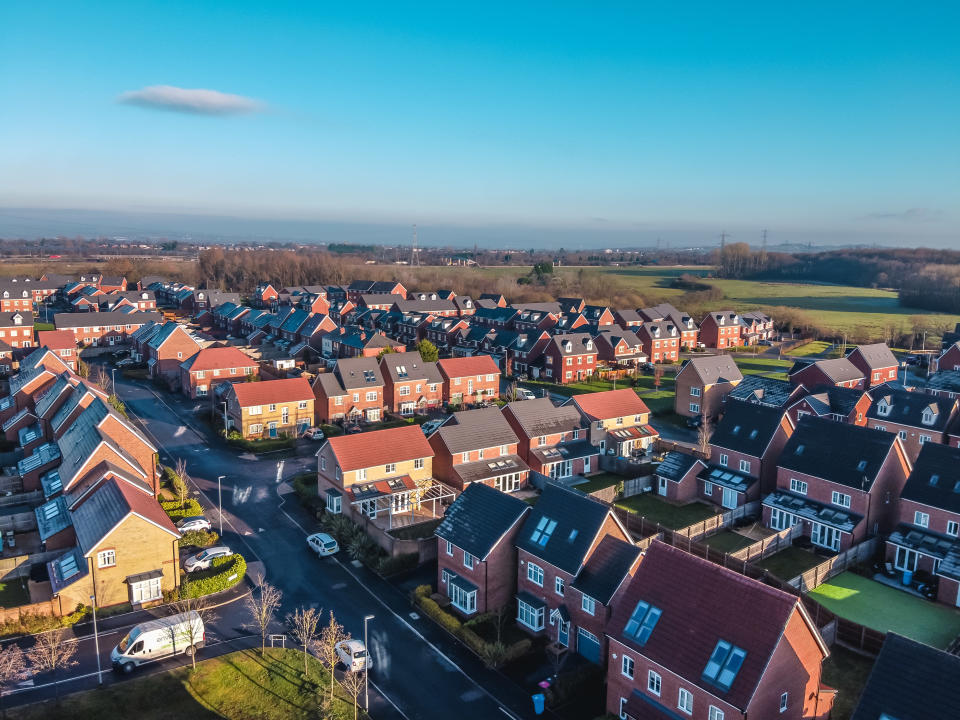First-time buyers in the UK moving back in with their parents to save for house deposit

Some 14% of first time buyers — equating to 51,000 Brits — have moved back in with their parents in order to save for a deposit, new research has found.
The average stay for first-time buyers staying with their parents is 9.5 years across the UK, according to the survey of over 2,000 UK first time buyers by online mortgage broker Trussle.
Two-fifths (40%) of Brits now need family support to purchase their first home. In In 2019, an estimated 142,400 out of 356,000 first time buyers used financial gifts to buy a home.
The research puts this down to a long trend of rising property prices, with Office for National Statistics (ONS) data from August 2020 showing that the average house price has increased by £65,583 ($86,812) over the past 10 years.
READ MORE: UK millennials shun city living amid move to remote working
In 2020, prices have risen further, fuelled by demand generated by the government’s coronavirus-related stamp duty holiday. House prices increased by 5.8% during October alone, according to the Nationwide House Price Index.
Lenders have also cut the number of high loan-to-value (LTV) mortgage products significantly, with many lenders stopping offers of mortgages with 10% deposits to first-time buyers in the UK, amid the economic uncertainty caused by COVID-19. Over nine in 10 (92%) of all 90% LTV deals have been taken off the market since March this year, according to Trussle.
The average first time buyer deposit now sits at 20%, according to separate research from Finder.
First-time buyers from Nottingham would have to stay at home longest, as they could take 12 years to save a 20% housing deposit, Trussle found when looking at ONS data on income, average first-time buyer property prices and estimating that buyers could save at least one fifth of their salary.
WATCH: UK property: What is shared ownership?
Househunters in Norwich come in second place, having to stay with their parents for 11.5 years in order to save a deposit, with average property prices in the city standing at £206,060.
Residents of Plymouth would have to stay at the hotel of mum and dad for 11 years to save a deposit for a £190,000 home.
Homebuyers in Edinburgh would need to spend the least time at home, needing only seven years to save for a 20% deposit on a £157,692 property.
Seven in 10 (69%) first-time buyers said that they felt priced out of the housing market and could not afford to live in their desired location and 76% admitted to feeling worried, confused, or angry by the mortgage market, according to Trussle.
READ MORE: The most common new build snags for UK homebuyers
Miles Robinson, head of mortgages at Trussle said: “First time buyers are bearing the brunt of rising house prices and economic uncertainty. In recent years, many of these buyers have needed a ‘leg up’ onto the property ladder. If increasing property prices and tightening household finances mean the Bank of Mum and Dad can no longer bridge the gap, then this could have big ramifications for the property market.
“The property market is essentially an ecosystem and so it’s crucial to have first-time buyer activity if the market is to stay healthy. We must ensure the market is accessible to first time buyers, and lenders can play their part by reintroducing higher LTV mortgages. This would not only help first time buyers to embark on their home ownership journeys, but also make sure the market is in a position to confront the challenging economic climate ahead of us.”

 Yahoo Finance
Yahoo Finance 